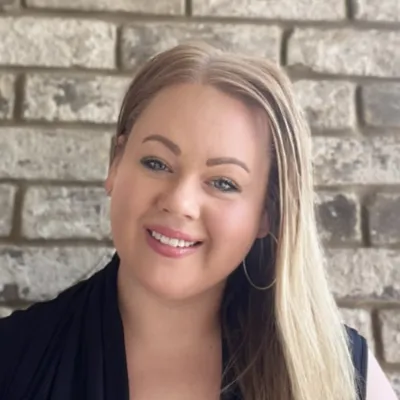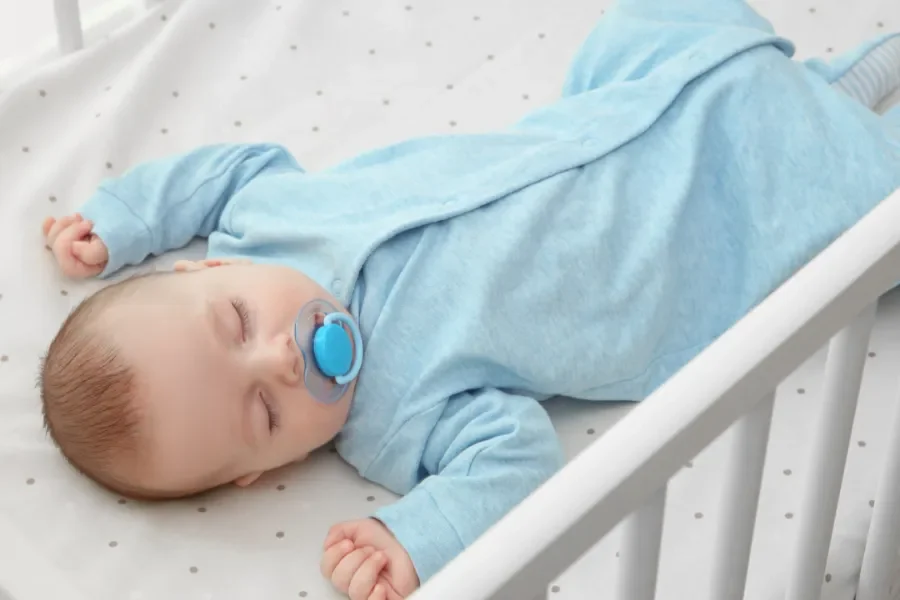One of the most common concerns I hear from parents is about their baby waking up shortly after being put to bed. This phenomenon, often referred to as a “false start bedtime,” can be both puzzling and frustrating. Let’s explore why false starts happen and practical tips to prevent them.
Sign up to receive more tips for better sleep!
What is a False Start Bedtime?
A false start bedtime occurs when your baby wakes up 30-45 minutes after being put down for the night. This can be confusing because it seems like your baby is ready for a long stretch of sleep, only to wake up again soon after. Understanding the reasons behind these early evening wake-ups is key to finding a solution.
Common Causes of False Start Bedtimes
- Short Sleep Cycles
- Newborns and young babies: They have shorter sleep cycles, typically lasting around 50-60 minutes. Often, they will wake up at the end of their first sleep cycle, which can be as soon as 30-45 minutes after falling asleep.
- Transition between sleep cycles: During the transition between sleep cycles, babies might briefly wake up. If they are unable to self-soothe back to sleep, they may fully awaken and need assistance to settle back down.
- Overtiredness
- Missed sleep window: If a baby is put to bed too late and becomes overtired, it can lead to difficulty falling asleep and staying asleep. Overtired babies often have trouble settling down and can wake up shortly after being put to bed.
- Increased cortisol levels: Overtiredness can cause the release of stress hormones like cortisol, which makes it harder for babies to stay asleep.
- Hunger
- Growth spurts: Babies go through growth spurts, during which they may need to eat more frequently. If your baby wakes up shortly after bedtime, they might be hungry and in need of an extra feeding.
- Cluster feeding: Some babies naturally cluster feed in the evening, taking in more frequent and smaller meals before settling into a longer stretch of sleep.
- Discomfort or Environment
- Room temperature: If the room is too hot or too cold, your baby may wake up due to discomfort. Ensure the room is at a comfortable temperature for sleeping.
- Noise: Sudden noises can startle a baby awake. Using white noise can help mask household sounds and create a more soothing sleep environment.
- Swaddle or sleep sack: Babies may wake up if they are not comfortable. Ensure that your baby is swaddled securely (if they are still swaddling age) or is in a comfortable sleep sack.
- Developmental Changes
- Sleep regressions: Around 4 months, many babies experience a sleep regression due to significant developmental changes. During this time, their sleep patterns mature, and they might wake up more frequently.
- New skills: As babies learn new skills, such as rolling over or crawling, they might wake up more often as they practice these skills, even in their sleep.
Tips to Prevent False Start Bedtimes
- Establish a Calming Bedtime Routine
- Consistent bedtime routines, such as a warm bath or a lullaby, can signal to your baby that it’s time to sleep.
- Create a Sleep-Friendly Environment
- Ensure the room is dark, quiet, and at a comfortable temperature. Using a white noise machine can help create a soothing atmosphere.
- Watch for Sleep Cues
- Pay attention to signs of tiredness like yawning, eye rubbing, or fussiness, and put your baby to bed before they become overtired.
- Monitor Feeding Times
- Make sure your baby is well-fed before bedtime to avoid hunger-related wake-ups. During growth spurts, consider offering an extra feeding.
- Comfort and Reassure
- If your baby wakes up shortly after bedtime, offer comfort through gentle patting, shushing, or briefly picking them up to soothe them back to sleep.
Understanding the causes of false start bedtimes can help you take steps to prevent them, leading to better sleep for both your baby and you. Remember, every baby is unique, and it might take some trial and error to find what works best for your little one.
If you need more personalized guidance, don’t hesitate to reach out to Bluebird Sleep Consulting. I’m here to support you and help your family achieve better sleep for happier, healthier lives.
Sweet dreams!

